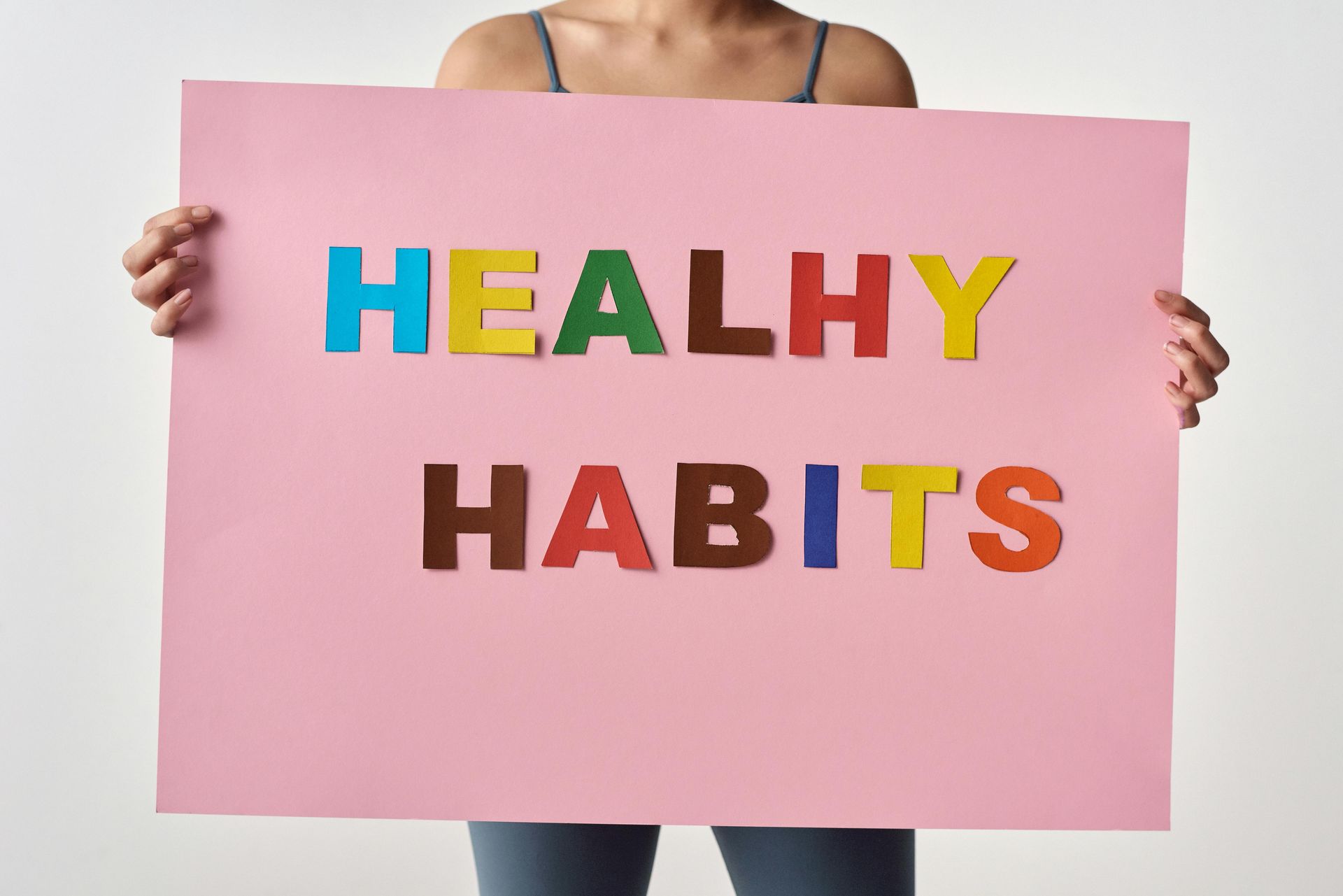Blogs

by Dr Neesha Patel
•
22 January 2025
Restriction vs. Creating Realistic Habits for Healthy Weight Loss At this time of the year, there is a great deal of information health and wellness in the media, TV and social media channels. When it comes to weight loss, the journey often starts with high motivation and strict goals. Many people turn to restrictive diets, cutting out entire food groups or drastically reducing calories in the hopes of achieving quick results. While this approach can lead to short-term weight loss, it’s rarely sustainable and often leads to frustration, burnout, and eventual weight regain. In my clinical practice and my previous experience of working in NHS Obesity services, I have worked with many patients who have struggled with yo-yo dieting and the frustration of repeated weight regain. These individuals often came to me feeling defeated, having tried numerous restrictive diets without lasting success and felt that having weight loss surgery was the only solution left to try. However, by shifting their focus to creating sustainable habits and learning the skills to manage their weight, many of these patients achieved not only their weight loss goals but also a greater sense of happiness and control over their health without the need for a life-changing surgery. Some also reversed their risk of developing type-2 diabetes, a chronic condition related to lifestyle and weight. Witnessing their transformation as they adopted realistic strategies and found freedom from the cycle of restriction confirmed the research evidence on the power of habit-based approaches. What are the Downsides of Restriction? Restrictive diets often promise rapid weight loss, but they come with significant downsides: Unsustainable Practices : Restriction can make eating feel like a chore or punishment. This mindset makes it difficult to maintain the diet over time. Nutritional Deficiencies : Cutting out entire food groups (e.g., carbs, fats) can deprive the body of essential nutrients, leading to fatigue, irritability, and other health issues. Psychological Strain : Restriction can lead to feelings of deprivation, which may increase the risk of binge eating or developing an unhealthy relationship with food. Yo-Yo Dieting : Rapid weight loss often results in rapid weight regain when the restrictive plan becomes unsustainable. This cycle can negatively impact metabolism and mental health. Why Habits Work Better Than Restriction Psychology informs that habits are powerful because they require less conscious effort over time. When healthy behaviours become automatic, they’re easier to maintain, even during busy or stressful periods. Unlike restrictive diets, which often feel like temporary fixes, habits create a foundation for lasting change and improved health. For instance, replacing sugary beverages with water or eating a balanced breakfast every day might not seem transformative at first. However, these habits accumulate over time, contributing to sustainable weight loss and overall healthier lifestyle. The Power of Realistic Habits to Build Your Healthy Weight Loss Plan Creating realistic habits focuses on gradual, manageable changes that fit into your lifestyle. This approach fosters long-term success by promoting consistency and balance. Here are a few tips to get started: Small, Gradual Changes : Instead of overhauling your entire diet, focus on one or two changes at a time. For example, start by drinking more water or incorporating a serving of vegetables into every meal. Once it becomes routine, add another. Balanced Nutrition : Think of meals as an opportunity to fuel your body, rather than as a strict regimen. Restriction leads to more cravings of the foods you are trying to restrict from your diet! Aim for a diet that includes all food groups, emphasising whole, minimally processed foods. Mindful Eating : Pay attention to your hunger and fullness cues, and eat without distractions. This helps prevent overeating and encourages a positive relationship with food. Realistic Goals : Set goals that are achievable and specific, such as losing 1-2 pounds per week or walking 30 minutes a day. Small wins build confidence and momentum. Be Patient : Sustainable weight loss takes time. Focus on progress rather than quick results. Seek Support : Whether it’s a friend, family member, or health professional, having support can help you stay accountable and motivated. Be Kind and Flexible : Life changes, and so will your habits. Be flexible and adjust your goals and routines as necessary but do it with kindness and compassion for yourself. Celebrate Progress, Not Perfection : Weight loss journeys aren’t linear, and slip-ups are normal. Celebrate progress and focus on consistency rather than perfection. Celebrating progress will also help you to stay motivated. Remember…. Weight loss doesn’t have to mean extreme restriction. By focusing on creating realistic, sustainable habits, you can achieve your goals while improving your overall relationship with food and your body. This balanced approach not only promotes healthy weight loss but also lays the groundwork for a healthier and kinder lifestyle for YOU! Thank you for taking the time to read this blog. Warm Wishes Dr Neesha Patel F or more information on how to access psychological support or for a no obligation free 15-minute telephone consultation, please contact: info@evokinghealth.co.uk

by Dr Neesha Patel
•
18 July 2024
Endometriosis is a chronic gynaecological and often debilitating condition which has been referred to as the ‘missed disease’ due to its unclear aetiology and inconsistencies in its diagnosis and management. As it stands it can take up to nine years to diagnose the condition, so one can only imagine the significant physical and mental impact this can have on women and their families, careers and life in general. In my NHS and private clinical health psychology practice, I have worked with many women who have described their symptoms, pain and the ordeal of accessing care and getting a diagnosis for endometriosis. I have always empathised with them and tried to help them find some solutions but by the time they finished therapy with me, whether that was for weight management, preparation for weight loss surgery, or lifestyle behaviour change, they still had this feeling of hopelessness and huge amounts uncertainty about whether the health system will be able to help them and what the impact on fertility would be in the future. Through my own curiosity and research into the condition, I realised that unlike other long-term conditions such as diabetes, heart disease and asthma; endometriosis has remained largely ignored in government policy and research funding, as well as psychological treatment, globally. In this day and age this is hard to believe and accept. Any long-term chronic condition can have a significant impact on psychological well-being. However, the psychological aspects of endometriosis are complex, encompassing emotional, mental, and social difficulties, especially due to the care pathway, lack of psychological research and delays in diagnosis. Understanding the psychological impact of endometriosis is crucial for providing effective, empathetic care and improving the overall quality of life for those affected by this challenging condition. Let's explore the psychological challenges women face when living with a chronic condition like endometriosis: 1. Emotions The persistent and often severe pain associated with endometriosis can lead to feelings of frustration, helplessness, and hopelessness. Chronic pain is strongly correlated with increased levels of anxiety and depression. 2. Distress The uncertainty and unpredictability of symptom flare-ups can cause significant emotional distress. Women may experience mood swings, irritability, and emotional exhaustion even whilst going through the process of getting a diagnosis or whilst waiting for surgery. 3 . Mental Health and well-being Anxiety about pain, fertility issues, and the ability to maintain personal and professional responsibilities. The anticipation of pain can exacerbate anxiety symptoms. Depression, the ongoing physical pain, coupled with the impact on daily activities and life goals, can contribute to a depressive state. Daily functioning, more stress, poor sleep, perceiving treatment as ineffective, together with unhelpful coping strategies can lead to a downward spiral. 4 . Social and relationship challenges The chronic nature of endometriosis can lead to social withdrawal. Women may avoid social interactions due to pain or fatigue, resulting in feelings of isolation and loneliness. The condition can put a strain on intimate relationships. Sexual dysfunction, due to pain during intercourse (dyspareunia), can cause tension and affect intimacy. Partners may struggle to understand the extent of the pain and emotional burden, leading to potential conflicts. 5. Work and Life The symptoms of endometriosis can interfere with work and daily activities, leading to reduced productivity and increased absenteeism. This can affect career progression and financial stability. 6 . Self-confidence The physical and emotional toll of endometriosis can affect self-esteem and body image. Women may feel less confident and struggle with a sense of worthlessness, especially if they gain weight, struggle with fertility, maintaining work leading to financial constraints. So, how do women possibly cope? From a psychological perspective, examining coping strategies of those with chronic conditions reveals a need for positive approaches like seeking social support, engaging in therapy, and embracing healthy lifestyle changes. However, it can be challenging for women dealing with chronic pain. Unhelpful coping strategies like comfort eating and substance abuse can worsen mental health. Repeated habits are hard to break, may require professional psychological support for healthier habits. Can psychological support or therapy really help? I maybe bias here, but the answer is YES. Why? Many women with endometriosis often find themselves in a state of isolation, grappling with feelings of guilt and shame due to their condition. Therapy offers a safe space for individuals to delve into and address the deep-seated beliefs and emotions that fuel catastrophizing. For instance, catastrophizing can exacerbate pain perception in endometriosis, based on how one interprets their pain. When individuals worry about potential outcomes, dwell on negative thoughts, or feel overwhelmed by their condition, it can intensify pain sensitivity, resulting in increased pain and worsened symptoms. Not everyone is aware of this and therefore the suffering spirals into a vicious cycle. What are the best types of therapy for this particular condition? There are many therapies out that can offer tailored strategies to cope with the emotional and psychological burden of the condition. This can feel daunting, overwhelming and confusing, so here are my top three recommendations: 1. Cognitive Behavioural Therapy (CBT) can help women manage pain, reduce anxiety and depression, and improve their overall quality of life by changing negative or unhelpful thought patterns, emotions such as fear and anxiety. 2. Mindfulness and Relaxation techniques such as mindfulness, meditation help in managing pain and reducing stress levels as well. 3. Acceptance and Commitment Therapy (ACT ) can help to encourage women to engage in pleasurable and meaningful activities, even in the presence of pain or discomfort, and can help counteract feelings of guilt or shame and promote a sense of enjoyment and satisfaction in life. As humans, no matter what our situation, we all have values and goals, but often we are not aware of them until you embrace yourself into a conversation about this. Clarifying your values and identifying meaningful goals can provide a sense of purpose and direction despite the challenges posed by endometriosis. By focusing on what matters most can cultivate a sense of self-worth and fulfilment, independent of the condition. Social Support Joining support groups, either in-person or online, can provide a sense of community and shared understanding. It can also provide education about the condition, treatment options, and pain management strategies to empower women and reduce the anxiety related to uncertainty and lack of control. Registered charities and podcasts are also a great source of information on learning more about the condition. Please see the ‘What next section’ below for further details. What needs to change for the future? There needs to be better and more consistent understanding of endometriosis, together with specialised professional health support much earlier, including psychological support, and for those in the process of getting diagnosed. But how? Here are a number of ways in which this can be actioned: 1.Raising awareness and communication about the condition in the health systems, be it public or private and workplaces where we all spend a huge chunk of our day. 2. Providing credible education to all about the condition to reduce the stigma and stereotyping, and help women to normalise their feelings – not just awareness weeks and months. 3. Setting up champions and ambassadors with lived experience to share their story to help others. 4. Encouraging women to access professional and credible psychological support to talk about their difficulties and through therapy find ways to help women live a rich and meaningful life because everyone deserves this. Therapy won’t take away the pain or symptoms but it will provide a safe empathetic space to build a sense of hope and manage the symptoms by developing healthy coping strategies. 5. Finally, understanding and accepting the psychological impact of endometriosis is crucial not only for women living with it but for all health professionals, employers, family, friends and society in general. This can help to for provide effective, empathetic care and help to improve the overall quality of life for those affected by this challenging condition. What next? For more information on how to access psychological or therapeutic support or for a no obligation free 15-minute telephone consultation, please contact: info@evokinghealth.co.uk To access more information about the condition and for more general support including free webinars, research, news and events, please visit the charity: www.endometriosis-uk.org Finally, if you haven’t already, then please check out the DEARG podcast Episode 20 [Breaking Barriers: Psychological Support and Coping Strategies for Endometriosis and Chronic Conditions] which was released on Wednesday 19 th June 2024 on Spotify and Apple by Podcast Producer and Medical Scientist and Kathleen King. 🎙️ Click below to tune in to the podcast via: Spotify: Breaking Barriers: Psychological Support and Coping Strategies for Endometriosis and Chronic Conditions Apple Podcasts: Breaking Barriers: Psychological Support and Coping Strategies for Endometriosis and Chronic Conditions







